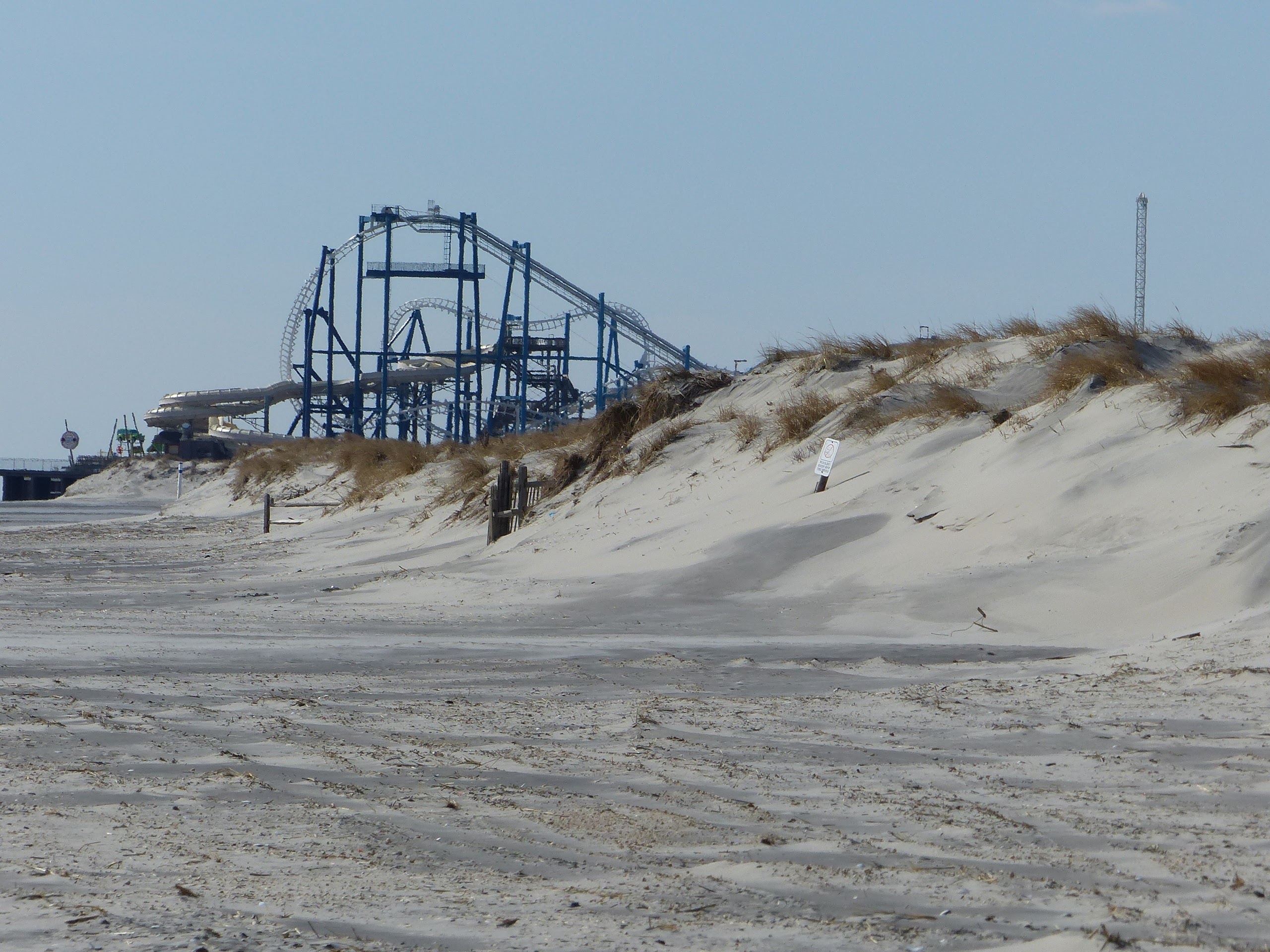Zip! Zing! Hummmmmm! They are here! The first ruby-throated hummingbird of the year showed up at my feeder at my postage stamp-size garden behind my Cape May condo about two weeks ago. My garden is comprised of a couple of raised beds, large pots, and of course, two bright red hummingbird feeders. The older I have gotten, the smaller my dwelling and garden have become. However, I will always make room for pollinators.
Why pollinators? At the Pollinator Partnership, an organization dedicated to promoting “the health of pollinators, critical to food and ecosystems, through conservation, education, and research” states on their web-site, www.pollinator.org:
Pollinators need you. You need pollinators. Birds, bats, bees, butterflies, beetles, and other small mammals that pollinate plants are responsible for bringing us one out of every three bites of food. They also sustain our ecosystems and produce our natural resources by helping plants reproduce.
Pollinating animals travel from plant to plant carrying pollen on their bodies in a vital interaction that allows the transfer of genetic material critical to the reproductive system of most flowering plants – the very plants that
· bring us countless fruits, vegetables, and nuts
· ½ of the world’s oils, fibers and raw materials
· prevent soil erosion
· increase carbon sequestration
This nearly invisible ecosystem service is a precious resource that requires attention and support – – and in disturbing evidence found around the globe, is increasingly in jeopardy.”

This website is a wealth of information if you want to delve deeper and gain a refresher on the primary school science lesson on what exactly is pollination. Suffice it to say, it is an essential part of life on earth!
So, what can we do to be pals to pollinators? First is to be deliberate and make space for pollinators in your world. Brush off the prejudice that “bugs are bad” and welcome all of Mother Nature’s friends to your backyard.
But it does not just stop in our own home spaces, we need to encourage healthy eco-friendly habitats in the corporate landscapes, public spaces, farms, school grounds and local businesses. Frankly, there is a quite simple way to do this, and you only need to remember two points: (1) plant native plant species and (2) diversify – variety is the spice of life!

Research has shown that local pollinators prefer local native plants. So when planning to create a successful pollinator haven, it is essential to learn about what native plants thrive in your region. Hint: it is not the hydrangeas and crepe myrtles that we see dotted all over the seaside communities of Cape May County. The Pollinator Partnership’s website noted above has a wonderful resource section with guides to selecting the right plants. Better yet is the Jersey -Friendly Yards – Landscaping for a Healthy Environment web page www.jerseyyards.org which includes a wonderful resource for us here in Cape May County, Going Native: A Guide to Landscaping with Native Plants in the Barnegat Bay Watershed
Another way to learn about the native plant options for our area is to visit places featuring natives in their gardens. Here at the New Jersey Audubon’s Nature Center of Cape May and at our Cape May Bird Observatory’ Northwood Center in Cape May Point our display gardens and trails highlight such plant specimens. And the naturalists who work at these locations will be more than happy to “talk shop” and help identify the vegetation and the birds and bugs who utilize them. Other gems in or count for viewing native plant gardens include the Wetlands Institute, the Cape May County Zoo and the new Cape May Point Science Center that recently added a pollinator garden in its courtyard.
If you are ready to make a difference and start planting native plants in your home landscape or business location, now is the perfect time to do so. The Nature Center of Cape May holds an annual fundraiser each year on the first Saturday in May making more than sixty different NJ native flowers, ferns, grasses, vines, shrubs, and trees available. This year we ordered a bit too much so plenty of leftovers are still available with prices now reduced. Stop over any time Thursday – Monday 10am to 4pm and the staff will help advise you on the right selections for your site conditions. There are also several small operation local growers in our County and garden centers choosing to sell native plants as more customers are demanding these selections.
As they say, plant it and they will come! If you would like to see what can be done, come out to the Nature Center of Cape May anytime or during the Cape May’s Harbor Fest on Saturday, June 29th. Our newly renovated Welcome Center Garden was redesigned with pollinators in mind. Packed full of powerful posies specially chosen for the harborside setting, the garden also includes a bee observation hive with plexiglass windows to peek inside.
The hive was made possible through support from the Jersey Cape Beekeepers Association, the Cape May Honey Farm, and the Kiwanis Club of Cape May. During Harbor Fest, garden tours and meadow walks will be offered for free throughout the day.








